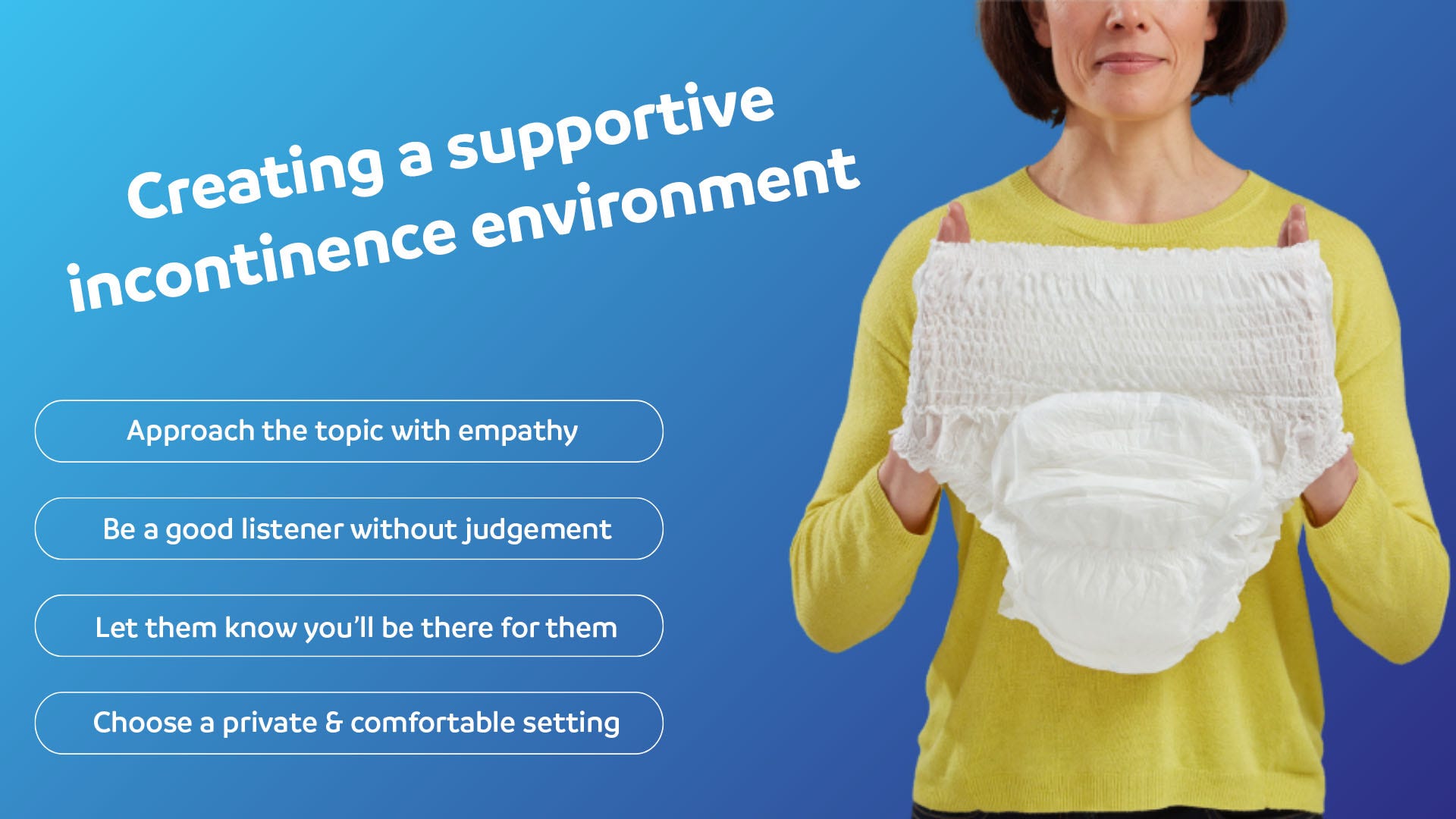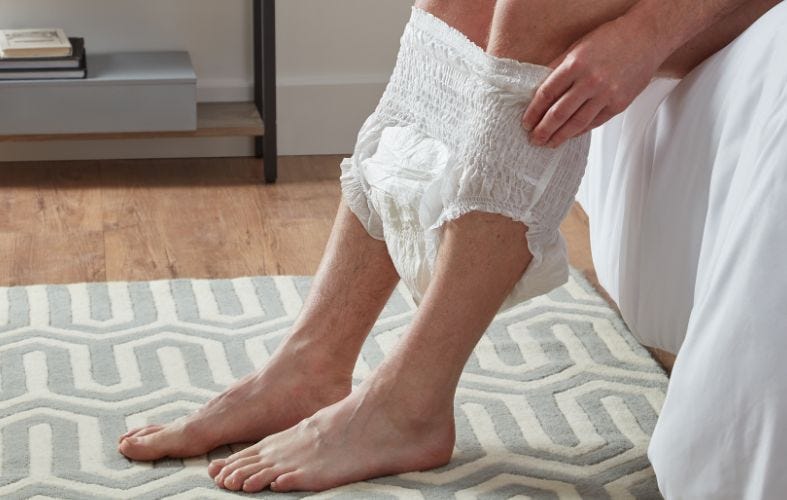
Share this page with friends
How you can support someone with incontinence
Discovering that a friend or family member is experiencing incontinence can be a sensitive and challenging situation. Not just for them, but for you too. Supporting someone else through their troubles can take its toll if you don’t have a clue what to do. We’re here to shed some light on how you can help someone you know manage their incontinence and guide them through a challenging time.
Create an open and supportive environment
One of the most important ways to support a friend or family member with incontinence is by creating an open and supportive environment. Nurturing a strong, comfortable relationship will help them to open up, giving you more insight into what they’re experiencing. By talking and sharing, you can build a better picture of what’s happening which will allow you to better help them.
Initiate a gentle conversation: Approach the topic with empathy and compassion. Some people are super open about their incontinence but it’s definitely still a source of embarrassment and shame for a lot of people. It really shouldn’t be this way. With 4 million people in the UK alone experiencing incontinence; it’s about time we all started talking about it. Choose a private and comfortable setting, make a cup of tea and chat over their needs. Assure them that you’re there to support them through their journey.
Active listening: Be a good listener, don’t talk over them. Allow them to express their feelings and concerns without judgement. Validate their emotions and assure them that incontinence is common and manageable.
Encourage open communication: Encourage your loved one to openly communicate about the challenges they’re facing, including any discomfort or anxiety they’re experiencing. Talking about anxiety isn't an easy thing to do, so make sure you let them know that you’re there for them when they decide to open up.

Offer practical assistance and guidance
Beyond emotional support, practical assistance is really important. Two sets of eyes are better than one when it comes to finding the best deals!
Help them choose the right incontinence products: Choosing the right incontinence items can be a daunting and overwhelming prospect and often an expensive one. Supermarket own brands offer a cheap alternative to big brands, but you often pay the price with a sharp decline in quality. Vivactive on the other hand, are leading the way with their online-only, big brand alternatives. They’re far cheaper than what you’ll find in the supermarkets but give you the same confidence that you might expect from the big brands.
There’s plenty of incontinence solutions to consider, but the main ones are:
A problem shared is a problem halved and by helping them go through their options you’re actively helping to ease them through the whole experience.

Go with them to medical appointments: Offer to accompany them to GP/hospital appointments. Having a friendly face around in anxious situations can alleviate negative feelings and help them relax. Just giving someone a lift to the doctors can give them some time and space to chill out.
Support regular bathroom breaks: Heading to the toilet all the time can be embarrassing for some people. Try to create a comfortable atmosphere so that they’re not feeling awkward about using the toilet, or worse, holding everything in. Gently encourage them to take regular toilet breaks, in doing so you’ll nurture an open environment and act as a useful reminder.

Promote independence
Incontinence affects everyone differently, but for a lot of people it can create a feeling of loss of control. It ripples through their daily life, affecting everything. Things they used to do without a second thought now need to be approached with utmost consideration. By promoting independence, in the long run you’ll help them feel more in control of themselves and their lives.
Promote lifestyle adjustments: Encourage them to make lifestyle adjustments that can help manage their incontinence effectively, such as maintaining a healthy diet, staying hydrated, and engaging in pelvic floor exercises.
Empower self-care: Encourage the person to take an active role in their own care by managing their incontinence products, practising good hygiene and monitoring any potential changes in themselves.





